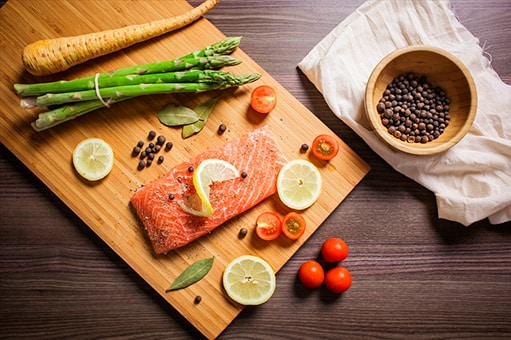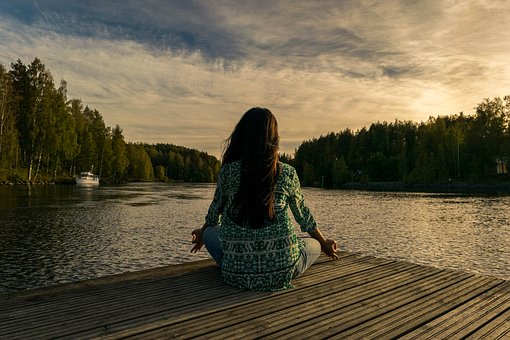Life offers us large and small pleasures. We would all like this feeling of enjoyment to continue over time, to be able to make it last as long as possible. In this article, not only will you find the keys to making these moments even more pleasurable but, in addition, I invite you to discover the existence of even more delightful sensations that generate states of satisfaction that outlive the enjoyment of more mundane pleasures.
The satisfaction of any need gives us pleasure, but sometimes we are so out of touch, we go so fast, that we do not notice or observe how many great pleasures life offers us in small doses.

Something has just occurred to me that I am sure will make you laugh. You may even think that I am joking, but no, I am going to speak absolutely seriously, but I can guarantee that you will at least smile. Well, during my childhood, teens and early adulthood, I suffered from constipation. Going to the toilet was almost a feat and sometimes even painful. I will not give you more details. The thing is that, some years ago, without any treatment of any kind, when I began to release many emotions and to live with greater freedom and assertiveness, my intestine also improved a great deal, and, over the course of time, going to the toilet has become a moment that I often find very pleasurable. Frequently, when having a bowel movement, I experience a great sense of pleasure, especially when I have not eaten anything that is hard to digest. Although this may seem like a joke, and it has made me laugh until I cried for several minutes upon re-reading it, it is not a joke, not in the least, although I would be delighted if, as I have done when writing and then reviewing this, you have also smiled when reading it. Basically, the secret behind this is that the satisfaction of any need gives us pleasure, but sometimes we are so out of touch, we go so quickly, that we do not notice or observe how many great pleasures life offers us in small doses. I could give you more examples, but I suppose this is sufficient for the moment.
The times we live in are threaded with hedonism, where it seems that pleasure is the purpose and the basis of life.
Just as there was a time when mortification was very much in vogue, especially in a more religious context, today pleasure is fashionable. It is said that the times we live in are threaded with hedonism, where it seems that pleasure is the purpose and the basis of life. I am not going to look at theology, or any philosophy, or any specific idea. I am simply going to talk to you about my personal experience. One of my nieces sometimes tells me with a certain amount of astonishment that she does not know anybody as happy as I, although she has also seen me cry, not once, but many times, and not always from laughter, sometimes from pain, too, but I admit that I am happier than the average mortal, although I never say so, because I fear that talking about it could spoil my invention, but today I am going to reveal it to you.
The more our senses are overstimulated, the less we feel, since they are becoming depleted and this, together with the disconnection from our inner being, hinders enjoyment.

Well, as I was saying, we live in a hedonistic society where the spotlight is on pleasure. This objective, devoid of any other consideration, has led to an overstimulation of the senses in thousands of ways. The special effects at the cinema are better than ever. The music in nightclubs is so loud that we have begun to have hearing problems. To enjoy sex, people are turning to practices that are sometimes degrading for the person and to the point of even seeking pain in order to feel pleasure. I recently saw a product in a health food shop that served to increase sexual desire. It seems that things are serious if it is necessary to resort to substances to feel like having sex. The fact is that I was quite surprised and, when I asked, the assistant told me that they sold a lot of it, it was one of the star products in a shop that mainly sells medicinal herbs. In short, there are very many examples. How can it be that the more our senses are overstimulated the less we feel? Do you think it strange? It is not, not at all, we are living at a time in which, on the one hand, our senses are being depleted due to overstimulation and, on the other hand, we are living cut off from our inner being.
The practice of meditation makes us more aware of what we really feel and how we are influenced by strong stimuli that in general terms and in appearance have lost their impact on us in the light of the desensitisation from which we suffer.

How do I know this? Quite simply because I have experienced it in some way. Let me give you a simple example. When I was a child, I remember that I was addicted to the television, I even did my homework while watching TV. Of course, my productivity was minimal at those times and my parents became annoyed, thanks to which things did not get worse. Subsequently, though not while studying, I continued to watch television until, one day, it simply no longer appealed to me. There were other things that I naturally found more interesting. I began to practise meditation on a daily basis. The fact is that I did not set out to do it, it just happened. I suddenly realised that I hardly ever watched television anymore because it just did not awaken my interest. After years of being disconnected from it to a great extent, I wanted to investigate a TV series that I had been told about. I shall not say which, as I do not wish to hurt anybody’s feelings. It is a very successful series that has been broadcast for years, although I am not sure whether it is still shown. I may have seen it during the period in which I watched more telly, although I do not remember precisely. The fact is, I was unable to watch more than 5 minutes. I found it tremendously aggressive, a time bomb to which my body reacted immediately with discomfort. In addition, it treated some very unhealthy topics and behaviours as though they were normal, inviting us to follow models and patterns that are, in reality, destructive for our relationships and our health. The same thing began to happen to me with the more commercial films shown at the cinema. Whilst the rest of the audience did not even react, there were scenes that I could not bear to watch because they caused me considerable malaise, which I considered unnecessary, and I stopped going to see certain types of films. In reality, a great deal of our leisure nowadays is contaminated by aspects that are unfavourable for us and which, far from being a healthy source of enjoyment, are an opportunity to sow in our unconscious the seeds of suffering, but we are not aware of it, we live superficially, dominated by our egos and disconnected from our inner being.
Insensitivity to external stimuli is partially due to the development of a degree of tolerance that makes it necessary for these stimuli to be ever greater, causing us to enter a spiral from which it is difficult to emerge and the endpoint of which is frustration.

That was when I discovered that, regardless of the fact that I may be very sensitive, which I am, there were many desensitised people around me who had ceased feeling, either due to oversaturation or to their becoming disconnected from themselves. This is really discouraging since, in addition to the fact that, in itself, the satisfaction of worldly pleasures is not usually very durable, they felt increasingly less. To solve this, they sought greater overstimulation which, instead of solving the basic problem, increased it. It is like somebody who is addicted to alcohol or any other substance. After consuming for a certain time, they generate tolerance, where their organism, since it is used to the substance, requires a higher dose to feel more, with all that this entails for the worsening of their health and they enter a spiral from which it is increasingly difficult to emerge. I must admit that this saddens me because, despite being able to live a full life, we enter a circle of dissatisfaction and continuous frustration, which I know that sooner or later will lead us to injure ourselves and others. There are many ways in which we can sabotage ourselves and making our body and our soul fall ill is one of them.
Dissatisfaction makes us easy prey for manipulators whose ideas we espouse when seeking the lost meaning of life, a meaning which, furthermore, cannot be found in the obsessive search for pleasure or by obtaining material things.
Being more or less aware that the aim of pleasure in itself does not lead to deep and lasting satisfaction, the moment comes when we run up against the meaninglessness of life and a lot of young people become easy prey for many manipulators who, far from wanting what is good for them, seek to win these boys and girls for their own selfish aims, which they do not always state clearly and directly. Thus, we see a growth in membership, for example, of neo-Nazi groups, but that is not all. Some are even willing to die for certain ideologies, whose ideas are far removed from the love of oneself and one’s neighbour, who, by the way, however different he may be from us and regardless of his beliefs, is just that, our neighbour, a reflection of what we are, too. The cult of money, of the beauty of the model, are also realities behind all of this. People seek happiness where it cannot be found, and we have examples of those who, despite having achieved all of this, lived in continuous dissatisfaction and found themselves at a dead-end that even led them to suicide, which is, without a doubt, the worst aggression one can do to oneself, lacking in sense, value, love and responsibility. Michael Jackson is a clear example of somebody who achieved everything that many people desire: fame, money, even becoming almost white, but not what the heart truly longs for, which is simply to love. Robin Williams committed suicide after discovering that everything he had achieved did not fill his emptiness and he felt vulnerable in the light of the difficulties that life presents, sooner or later. And there are many more examples like this.
Moderation is one of the doors to greater enjoyment. Keep things short and sweet.

You can easily infer from the above that a good tip for enjoying something is moderation. High-class restaurants know this very well, they always serve small quantities of food, with which it is not possible to feel satiated. “Short and sweet,” as the popular saying goes. Some of my friends are generally better examples than I in the cultivation of this moderation in the enjoyment of mundane pleasures, particularly in relationship with food, although I am well aware that this is necessary to a certain extent, to a degree which will vary according to the personality of each person. One of my teachers also told us that in Taoist tradition, when a man and a woman wished to have a child, they separated physically two weeks before the most fertile moment and were then reunited, feeling the desire to be together again. Of course, this is not the only aspect to consider, there are several more. He also told us that sexuality, as a profound expression of love for the other, means that the former does not become exhausted, although it may be transformed and lead us to states of perhaps less effervescence, but more depth, soundness and satisfaction. Each one of us provides the magic, and love sows creativity and beauty on each encounter, making it a miracle. It is enough for us to want to open up to love, without limits. You may then find more satisfaction in an embrace felt from the soul than in a penetration devoid of love.
Being fully aware of the senses, of what we do, is another door that leads to enjoyment of the small things of daily life, such as having a shower or cooking.

We need to slow down the rhythm of life, to enable us to notice small details. This increases enjoyment exponentially. It is necessary to pay attention to what you see, what you eat, what you touch, what you smell. By paying greater attention, you will gradually find more pleasure in little things. For me, the sensation I have after a nice shower is very pleasing and I focus on it to enjoy it as though in slow motion. Cooking has become one of my most pleasurable day-to-day moments, although it is true that I do not do it every day. Often, especially lately, I find myself humming melodies as I cook. I like the way I cut the vegetables, put them in the saucepan, see how they begin to boil. Each delicate step is a gift. Once I even felt that I loved an onion, which I constantly caressed in a way that gave me a mix of pleasant sensations of joy, fulfilment, affection, of deep satisfaction. I am normally alone while cooking but once, not long ago, somebody who was observing me said: “You seem very happy, has something happened?” I looked at her with a smile and said: “Nothing has happened, it’s just that I like cooking with love and if somebody else is going to enjoy it, so much the better.”
Meditation and contact with nature help us to connect to ourselves and to discover the wonders that surround us and of which we are not aware when we are disconnected from ourselves.

In short, there are thousands of occasions to enjoy the simple things. Recently, after a morning meditating at a zen centre, we sat down in silence to eat close to nature. Suddenly, a flower looked at me, for a second I saw a kind of transparent film that drew back like a little wavy curtain, and then the flower smiled at me from its nature, its energy entered within me, leaving a serene residue of enjoyment and satisfaction. Two minutes later, the same thing happened with another flower. After lunch I participated in a small festival, and I enjoyed seeing the children laugh, the acknowledgments received with simplicity and humility by some of the disciples and employees, the open heart of all those people was also mine, taking part in that beautiful tribute from an armchair. It was a wonderful day, and it moves me to remember it. We even took a fun photo with the teacher, who also has a great sense of humour, not always so visible to her disciples.
Love helps us to “be happy making other people happy”. Its fruits, such as gratitude and forgiveness, open the doors to deep and lasting satisfaction, and give meaning to our existence.

These are examples of how I have enjoyed simple, unaffected moments of daily life. No good film would have made its mark on me in the same way, and I have liked some of them very much and they have awoken intense, positive emotions, I would even recommend some of them. But these simple pleasures, that at first sight are perhaps not so exciting, have a unique depth of penetration. The reality is that profound and enduring satisfaction is possible and it transcends the enjoyment of mundane pleasures that, by definition, have a short duration. Behind all of this that I am telling you is not only a practice of meditation, but furthermore a commitment to happiness through service to others. A good friend of mine, a nun, now 91 years old and in great shape physically, psychologically and emotionally, said something that described precisely how I would live my life: “To be happy by making people happy.” Life offers us many possibilities every day to give something of ourselves from the heart, disinterestedly and without expecting anything in return. Sometimes it is just a smile, perhaps being a good listener, giving a hug, helping with a specific matter. This, together with gratitude and based on forgiveness, all of this the fruit of love, have been my keys. Living in this way assures you that your life will have a meaning. I feel that I live fully, despite some very difficult moments that you could not even imagine. I know that others have reached the same state without “consciously” meditating, but through a deep immersion in nature, with which they have connected from their deepest being.
Every day, life offers the possibility of giving love altruistically. Sometimes it is enough to smile, to be a good listener or to help somebody with specific and simple things like crossing the street if they need it, without expecting any recognition, simply for the delight obtained from doing so disinterestedly.

In short, this is a clear invitation for you to delve deeply into yourself to find serene and lasting satisfaction. To pause for a while in this life full of activity, noise, powerful emotions that need more stimulations every day, with a sure prognosis of depletion of the senses followed by frustration. Furthermore, I invite you not to flee from yourself via dispersion or the desensitisation of your feelings, as numbness merely carries you further away from your inner being, causing a disconnection from the source of true satisfaction and from love with a capital letter. I invite you, in short, to open your heart to love, to free yourself from possible resentments, and to connect with gratitude for everything that life offers us, which I can assure you is very much. Life itself is already a gift.
